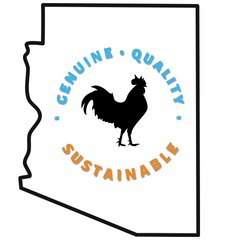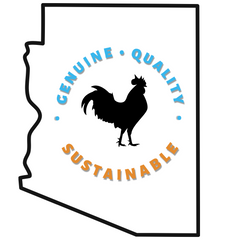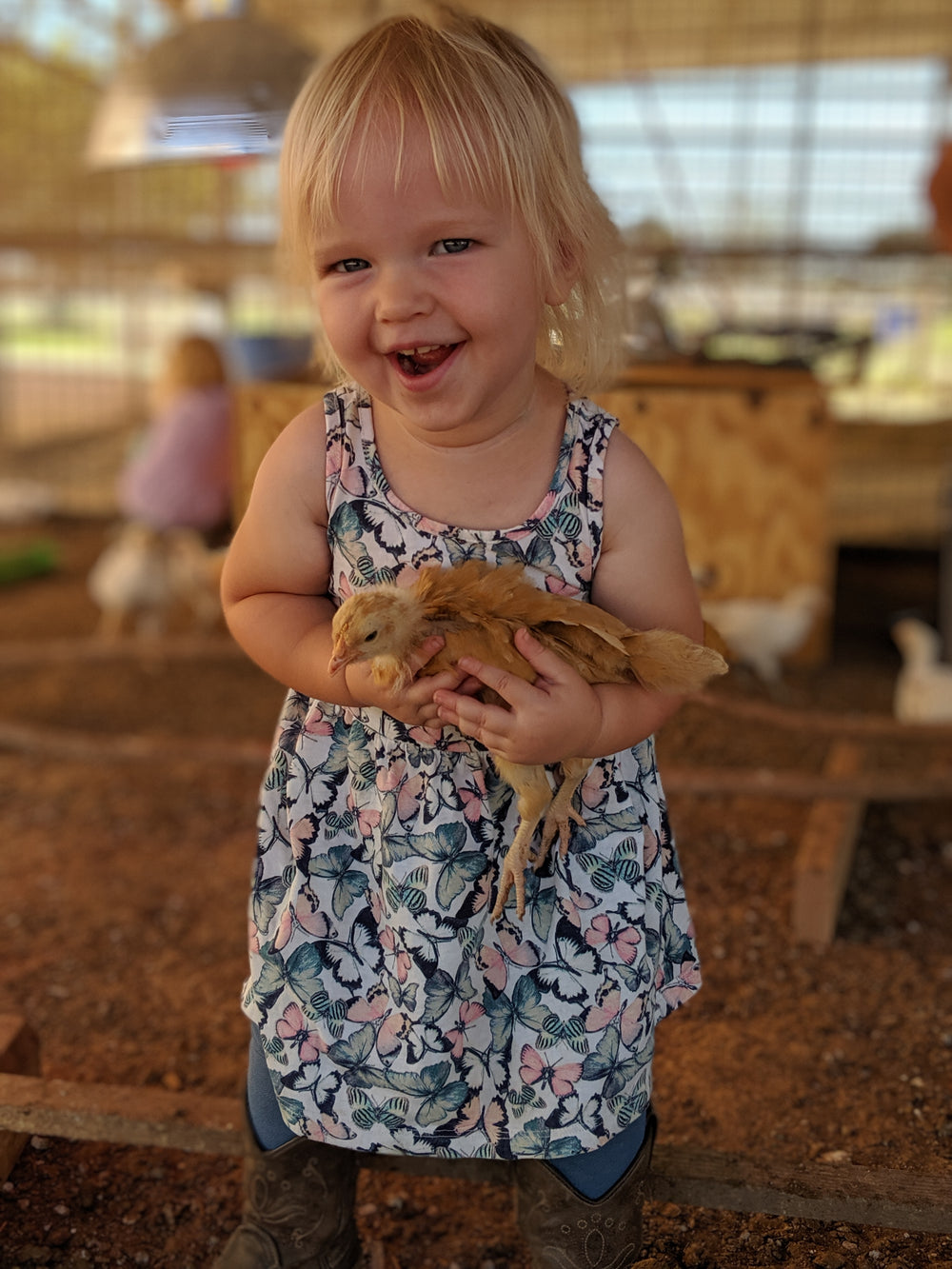Raising American Bresse Chickens for Meat
Our Family's Journey with Meat Birds
This is our trials of raising meat for our family. What was an experiment has turned into a small family ran business. We now help other families with self-sufficiency in eggs and some choose to use them for meat as well. We wanted both. The world has changed and we found a need for ourselves but it has shown to be a need for our friends, neighbors, acquaintances and fellow chicken lovers like YOU. We started by helping just a few and now we're able to help many families.
Our Goals
- Self-sufficient meat (if it made sense financially)
- Tasteful meat - if we're going to raise it, might as well taste good
- Eggs - if possible, keep the hens and keep the lines going
Our Experience with Different Breeds
Bresse - Our FAVORITE Bird
These guys are ABSOLUTELY our favorite to raise for meat! Bresse offers the most succulent, natural and flavorful tasting meat we've ever had. After all it is considered the best tasting chicken in the WORLD (They're imported from France, go figure)... but we certainly concur with that statement.
Key Features:
- Not a true heritage breed but one could consider a hybrid heritage breed
- Blue legs and a blue color tone to their skin
- Look funny when dressed out due to their blue tinted skin
- Can be harvested as soon as 16 weeks old, especially the roosters, but we prefer 6 months
Why We Love Them:
- Hens lay 250 eggs per year (yes, a MEAT bird with that many eggs!)
- Sustainable cycle: keeping girls laying, getting babies, raising babies
- Keep the girls, raise boys for dinner
- New girls get a new rooster from different bloodline
- Always have laying birds, growing birds and babies
- Keeps the cycle going and freezer full while ladies provide breakfast
Cornish Cross
We prefer tractors to allow them to eat freely at grass. However, our experience showed:
- Did not forage well unless we put food on the ground
- Forced foraging meant eating food off ground while getting bits of grass
- Not our ideal raising method
- They can really EAT
- Even with 12 hrs on/off food availability, they barely moved
- Preferred sitting at feeder and waterer
- Higher fat content due to lack of movement
- Lost lots of meat pounds to fat
- Harvested at 8-9 weeks old
- Averaged 6.6 lbs per bird
Pros:
- Tasted very organic due to our feed
- Lower cost to feed overall
- Quicker to harvest date
- Freezer fills faster
Cons:
- Did not meet self-sufficiency goals
- No eggs
- No future generations
- Must rely on buying chicks
Rangers
Also raised in tractors, but with different results:
- Forage VERY well
- Raised outside from week 2 (AZ climate allows this)
- 24/7 food until week 3/4
- Once feathered and weighted, get feed once daily
- Must forage for additional food
- Natural foragers, very active
- Would 'run' to us and jump on feed buckets even near harvest
- Processed at 14 weeks
- Averaged 5lbs 10 oz (straight run)
- Better taste than Cornish with more omega3 fat
- Less overall fat due to movement
- Some call it gamey/wild taste - our preferred fast-raising meat bird
Pros:
- Excellent foraging
- Can eat scraps, weeds, leaves, fruits
- Options for lower feed costs (microgreens, sprouted seeds, fodder, fermented feed)
Cons:
- Higher initial costs due to longer feeding time
- No eggs
- No future generations
- Must buy new chicks
Additional Breeds Tested
Fayoumi
Pros:
- Fantastic forager (almost self-feeding)
- Small eggs
- Quick reproduction
- Hardy in high heat and cold
Cons:
- Too small (2-3lbs meat total)
- Very early crowing
- Extremely flighty (9+ feet jumps)
Buff Orpington
Pros:
- Large bird
- Great forager
- Big eggs
- Can brood their clutch
- Very docile
- Good with children
- High omega 3 fats
- True heritage breeding potential
Cons:
- Lower egg counts
- Inconsistent layers
- Less desirable meat taste
Conclusion
Bresse are the only breed that met all our goals and fulfilled what we wanted. While other breeds have their merits, Bresse provides the perfect combination of meat quality, egg production, and sustainability for our family operation.


